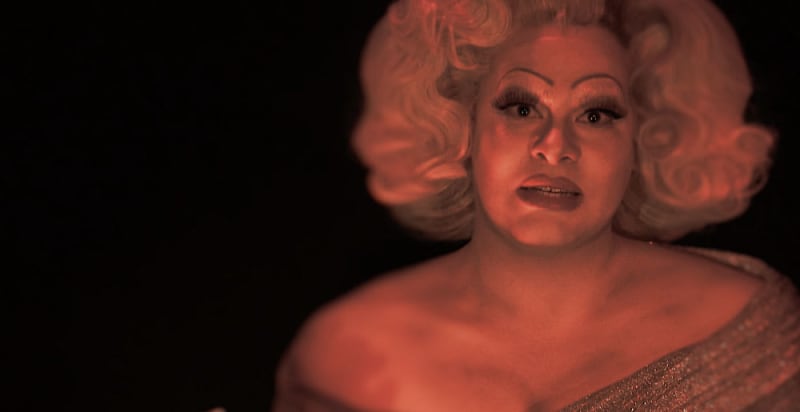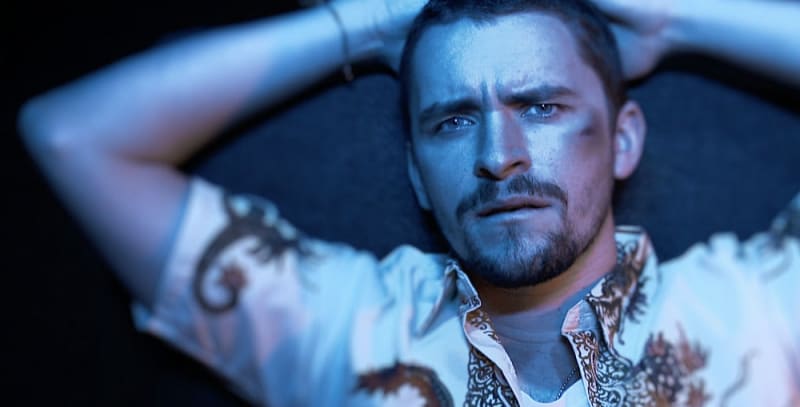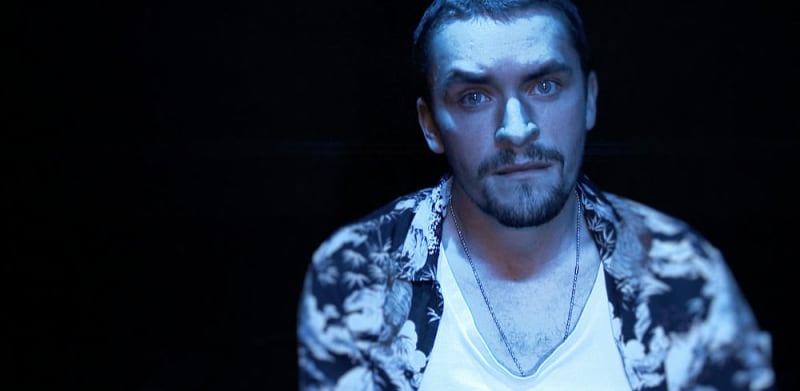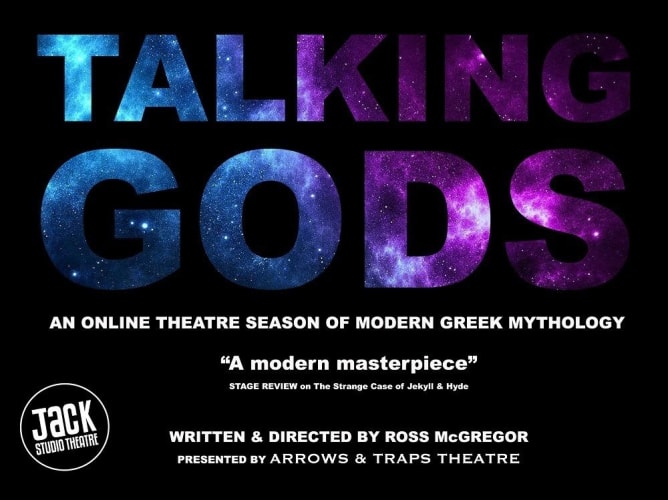If you think a play with the title Aphrodite is going to be all about smoochy-woochy love, make ready to open your heart to receive something quite different.
This Aphrodite is the fourth of a five-part series written and directed by Ross McGregor for Arrows & Traps' Talking Gods season, in which he has provided twists and slants on the stories that we may think we know from the canon of Greek mythology.
No longer inhabitants of Olympus, the gods now live on earth in a world similar to our own, but they carried with them the destiny decided for them at birth by the Fates. For Aphrodite, this was to embody love, and here McGregor has her put the record straight in a bitter and achingly sad narrative.
As the incarnation of this unique emotion, she has been made beautiful and filled with love but rendered incapable of sharing it. It is torture to endure and a cruel redundancy in a world so in need of it. The ugliness of the world is brought to us in a parallel narrative from Ares, god of war, who can recite the names of wars and murderers lest we forget. In therapy, the lines blur between the causes of his trauma: the endless conflict, the pointlessness of fighting without victory, the loss of the love of his life, Aphrodite.
Ares recounts his part in the downfall of Zeus, the king of gods, in court for crimes of depravity and brutality in the trial of the century, if not the millennia, which we were introduced to in the first play and which forms a golden thread woven through the series. But more importantly, it is this streak of honour and justice in Ares that signals his redemption. If Aphrodite is left without such redemption, neither is love left without hope.
This is an astonishing performance from Benjamin Garrison as Aphrodite who spits out clever, derisive one-liners that would be funny if they weren’t so vicious, yet balances out with passages of great tenderness. Buck Braithwaite's Ares is as menacing as it is moving, a spell-bind stare from which you cannot look away.
The introduction of Demeter / Hestia / Persephone from the first play lightens the mood but isn't a necessary or helpful deviation, and that aside, McGregor's writing is right on the button in not presenting a clear resolution of the type one might expect to get in a smooch-woochy story of love.
I can't pretend to have yet grasped the full mettle of this piece, but I do know that I have not stopped thinking about it. Like a Rubik's Cube, as I look at its faces, in each one I can see a different configuration of its features but none indicates the key as to how love and conflict can live together, whilst at the same time one cannot exist without the other.
Talking Gods is completed by Icarus.
The series is available to watch free on demand online. No tickets or registration is necessary. Donations are welcome. Age guidance varies; content warnings: strong language, descriptions of violence, adult content, mature themes and scenes of a sexual nature. Brief instances of flashing lights and music.





